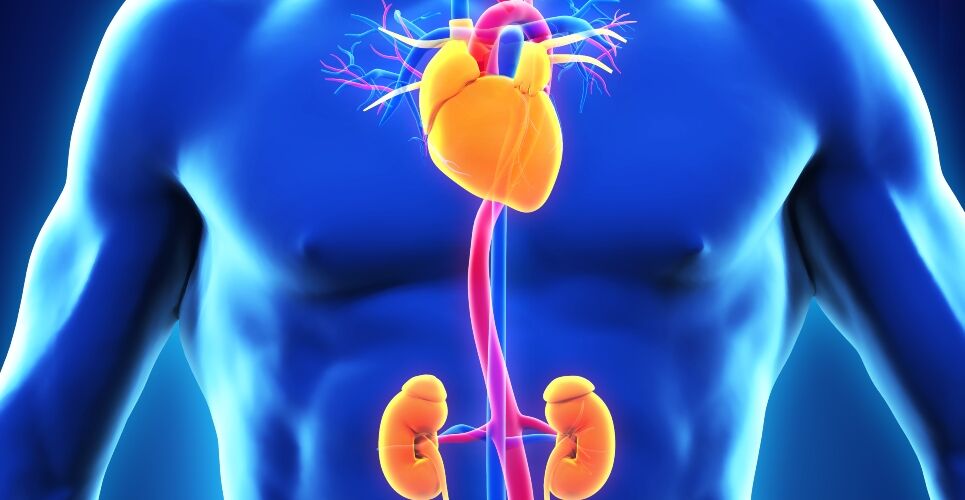Patients with kidney failure are at ‘an unacceptably high risk’ of myocardial infarction and stroke, but simple treatment strategies could make a difference, a study funded by the British Heart Foundation has found.
The research, which ran over 20 years, showed that patients who were either on dialysis or with a kidney transplant were up to eight times more likely to have a myocardial infarction and up to four times more likely to have a stroke than those without the condition.
The study highlighted a higher risk among women than men.
As a result of the significantly elevated risk of myocardial infarction and stroke and associated mortality amongst kidney failure patients, the researchers suggest that patients may benefit from anti-platelet medications and are calling for urgent clinical trials of these and similar medications.
Published in the European Heart Journal, the researchers used anonymised healthcare data from over 16,000 Scottish kidney failure patients from 1996 to 2016. They were able to examine whether myocardial infarction and stroke rate, treatments and survival had improved for kidney failure patients.
Over the course of two decades, the rate of myocardial infarction and strokes halved in kidney failure patients, and the associated deaths also fell. Between 1996 and 2016, amongst 16,050 patients with kidney failure (52±15 years; 41.5% women), there were 1,992 incident episodes of myocardial infarction and 996 incident episodes of stroke.
The most common underlying cause of kidney disease was diabetic nephropathy (24.4% [487/1,992] and 26.8% [267/996] for patients with myocardial infarction and stroke, respectively).
The reduction in rates of myocardial infarction and stroke were lower for patients with kidney failure than those seen in the general population over this time, and this gap became more pronounced for women than men.
For women with kidney failure the incidence rate ratio (IRR) for myocardial infarction increased from 6.38 in 1996 to 7.25 in 2014. In men, the IRR increased from 4.80 in 1996 to 5.45 in 2014.
For stroke, the changes in IRR were more modest, for women it was 3.92 in 1996 and 4.04 in 2014, whilst in men it was 2.92 in 1996 and 3.02 in 2014.
Kidney failure patients who had experienced myocardial infarction and stroke during the study had a chance of cardiovascular death at one year of 61.1% (1,217/1,992) and 52.5% (523/996), respectively.
Dual antiplatelet therapy for myocardial infarction
Professor Bryan Williams, chief scientific and medical officer at the British Heart Foundation, said: ‘This comprehensive study shows that, despite some improvements in recent decades, kidney failure patients are still at an unacceptably high risk of having a heart attack or stroke, and in some cases dying.’
The research revealed that simple treatment strategies could improve survival rates among kidney failure patients who have a myocardial infarction or stroke. Following a myocardial infarction, patients who were newly prescribed dual antiplatelet therapy were less likely to die of cardiovascular causes within one year than those who were not (13.6% [41/301] versus 40.5% [75/185]).
Professor Neeraj Dhaun (Bean), professor of nephrology at the University of Edinburgh, who was involved in the research, said: ‘Kidney failure patients are typically excluded from trials of post-heart attack or stroke treatments, like anti-platelet drugs, that become standard for other groups. The resulting lack of data to prove the drugs are safe and effective means there is an understandable reluctance from many doctors to prescribe them for this very high-risk group.
‘However, our results do show that anti-platelet drugs are being prescribed more often for kidney failure patients in recent years and this could bring with it huge improvements in the rate of survival.’
He added: ‘There is an urgent need for a clinical trial of these, and similar, drugs in kidney failure patients. By determining whether they are truly safe and effective, we could potentially bring about a much-needed improvement in treatment for these people.’

